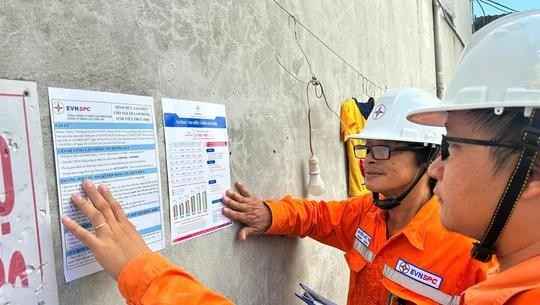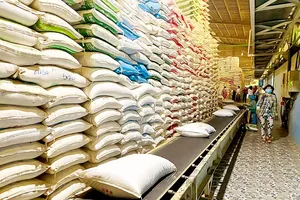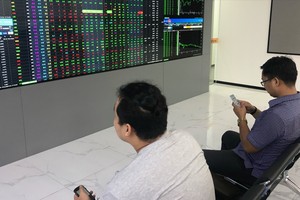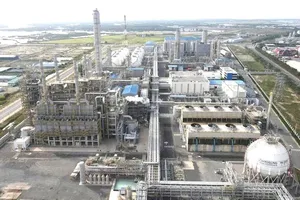Soaring electricity costs are compelling businesses to reorganize operations and reduce expenses, though authorities should implement stricter price controls.

According to decisions by the Ministry of Industry and Trade and Vietnam Electricity (EVN), the average electricity price has increased by 4.8 percent.
Amid surging input costs across the electricity sector, EVN has had no choice but implemented a price increase.
Economic experts warn that the impact of this price adjustment extends beyond just the economic aspect. It also creates pressure to alter people's electricity usage behavior and the way businesses operate. For the manufacturing sector, the rise in electricity prices compels a review of the entire operating process. Many businesses have promptly taken the initiative to restructure their expenses, meticulously calculating each stage of electricity consumption.
According to Tran Dai Nghia, Deputy General Director of Lam Thao Superphosphate and Chemical Joint Stock Company, on average, the company consumes 3.7 million kWh per month.
With an increase of 4.8 percent, production costs increase by about VND4 billion (US$154,074) per year, with the strongest impact on the high-content NPK product group. This forces businesses to promote the application of electricity-saving technology, such as implementing the ISO 50001:2018 system, digitizing energy management through PMS software, installing three-phase inverters, replacing high-efficiency motors and energy-saving LED lighting.
Similarly, Director Nguyen Van Ket of SKD Vietnam Precision Engineering Company, noted that electricity costs constitute approximately 20 percent to 30 percent of total product expenses. As a result, the company has proactively invested in technological upgrades and production line improvements to enhance operational efficiency.
Price transparency and price control
Assoc. Prof. Dr. Ngo Tri Long, former Deputy Director of the Institute for Price Market Research under the Ministry of Finance, assessed that the adjustment of electricity prices is reasonable when it is viewed in the context of the overall market.
However, the electricity sector must undertake significant internal reforms to reduce recurring costs, optimize system operations, and increase reliance on lower-cost energy sources. Crucially, it should publicly disclose detailed production costs for each energy type—hydropower, coal-fired thermal, gas, and renewable energy—to enhance public oversight.
According to him, clear roadmap for developing a competitive electricity market, both wholesale and retail, should also be implemented promptly to limit monopolistic practices, improve price transparency, and attract greater private investment in clean energy.
Mr. Nguyen Tien Thoa, Chairman of the Vietnam Valuation Association, said that without stringent control measures, electricity price increases could serve as a pretext for unjustified price hikes across many products. He recommended that regulatory agencies take decisive action, requiring businesses to publish transparent pricing before and after electricity price adjustments. For goods and services subject to state pricing, any adjustments must remain within the bounds of increased electricity costs. In other sectors, rigorous monitoring and strict penalties for unreasonable price increases are essential.
As input costs rise, Vietnam must inevitably integrate deeper into the global energy market, leading to increasing electricity prices. However, this adjustment should be accompanied by strict, transparent, and fair price management policies.
Enterprises see this as an opportunity to reinvest in energy saving and technology conversion, while the State closely monitors the market, protects consumer rights as well as promotes a competitive electricity market and a national sustainable energy strategy.
























